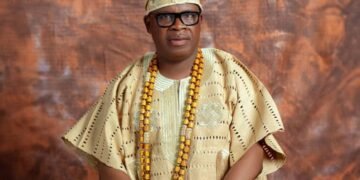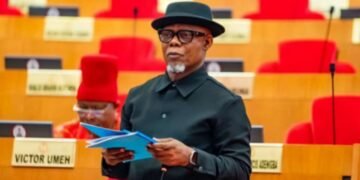The Ọmọ Yorùbá Àtàtà Socio-cultural Initiative (ỌYÀSI) has commended the Oyo State Governor, Engr. Ṣeyi Makinde, for his recent directive mandating civil servants in the state to wear traditional Yoruba attire with a touch of Aṣọ Òkè every Thursday.
The commendation was contained in a press release signed by the chairman of the initiative, Ọlawale Ajao, and sent to our correspondent on Thursday.
Governor Makinde, on Wednesday, January 29, 2025, directed civil servants in the state to wear traditional Yoruba attire with a touch of Aṣọ Òkè every Thursday. This initiative strengthens the existing practice of wearing native attire on Fridays and further promotes Yoruba cultural heritage.
According to Ajao, “Governor Makinde’s move aligns with a broader awakening across Africa towards reclaiming indigenous identity. A recent example is the landmark decision by Burkina Faso’s President, Ibrahim Traoré, who, on January 21, 2025, banned British and French colonial-style wigs in courts. This is a significant step towards decolonizing the country’s judicial system.”
He further stated, “As an organization committed to the preservation and promotion of Yoruba culture, ỌYÀSI urges other Nigerian governors and African leaders to follow suit by implementing policies that reinforce indigenous traditions and decolonize African societies.
“While we laud Governor Makinde’s initiative, we encourage him not to stop there. It is time to redefine our way of life in a manner that is completely rooted in our indigenous heritage. Beyond fashion, there are many traditional products that surpass their imported alternatives. For instance, ọṣẹ abùwẹ (herbal soap) is known to be more beneficial than some chemically manufactured soaps.
“Governments at all levels should actively identify, promote, and integrate such indigenous products into public use.”
Ajao reiterated that a nation that fails to harness its natural and cultural endowments cannot achieve true greatness or stand among developed societies.
“It is our hope that this directive marks the beginning of a broader cultural renaissance in Nigeria and across Africa,” he concluded.













